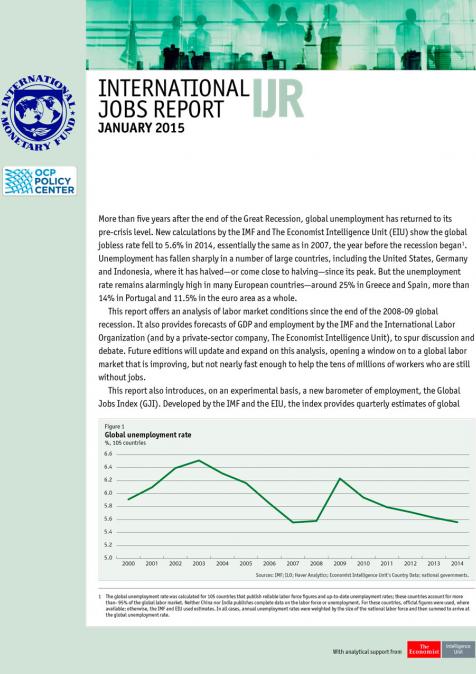Paul-Simon Handy, Regional Director for East Africa and Representative to the African Union, delves into the complexities of mediation in internal African conflicts. Despite half of the UN peacekeeping forces being deployed on the African continent, sustainable peace remains elusive. Mr Handy explores the reasons behind these challenges, shedding light on the intricate dynamics and obstacles that hinder effective conflict resolution.
RELATED CONTENT
-
AuthorsJanuary 21, 2015Le désengagement progressif des banques occidentales du secteur des matières premières est en marche. Deux raisons principales permettent d’expliquer ce « recentrage » : un accroissement des contraintes réglementaires et une moindre rentabilité. Ce retrait semble profiter aux grands négociants internationaux, mais également aux banques des pays émergents qui ne cachent pas leur appétit légitime dans ce domaine. ...
-
AuthorsJanuary 21, 2015Western banks are gradually withdrawing from the commodities market. Two main reasons can explain this refocusing: an increase in regulatory constraints and lower profitability. This withdrawal seems to benefit large international traders and banks in emerging countries that demonstrate their legitimate interest in this area. ...
-
January 16, 2015Les ressources énergétiques et les enjeux de la gestion de leurs revenus Roundtable website: http://bit.ly/Energy_13jan2015 ...
-
January 16, 2015Les ressources énergétiques et les enjeux de la gestion de leurs revenus Roundtable website: http://bit.ly/Energy_13jan2015 ...
-
January 16, 2015Les ressources énergétiques et les enjeux de la gestion de leurs revenus Roundtable website: http://bit.ly/Energy_13jan2015 ...
-
AuthorsJanuary 14, 2015The International Jobs Report offers an analysis of labor market conditions since the end of the 2008-09 global recession. It also provides forecasts of GDP and employment by the IMF and the International Labor Organization (and by a private-sector company, The Economist Intelligence Unit), to spur discussion and debate. Future editions will update and expand on this analysis, opening a window on to a global labor market that is improving, but not nearly fast enough to help the tens ...
-
AuthorsJanuary 10, 2015La chute des prix pétroliers observée depuis le milieu de l’année 2014 s’explique par la conjonction d’un excès d’offre et par une insuffisance de la demande dans un contexte économique mondial morose. Le niveau des prix ne peut cependant être la seule variable à prendre en compte dans une analyse prospective des effets macroéconomiques de cette baisse : structure par terme et volatilité des prix constituent ici des éléments explicatifs fondamentaux. ...
-
AuthorsJanuary 10, 2015The fall in oil prices since mid-2014 is due to the combination of excess supply and a lack of demand in a sluggish global economy. However, the price level cannot be the only variable to consider in a prospective analysis of the macroeconomic effects of this drop: futures structure and price volatility are fundamental explanatory elements. ...
-
Dhruva JaishankarDecember 18, 2014This podcast is performed by Dhruva Jaishankar. India has had several stages to its foreign policy since its independence. This included active international engagements in the 1950s, iso ...
-








